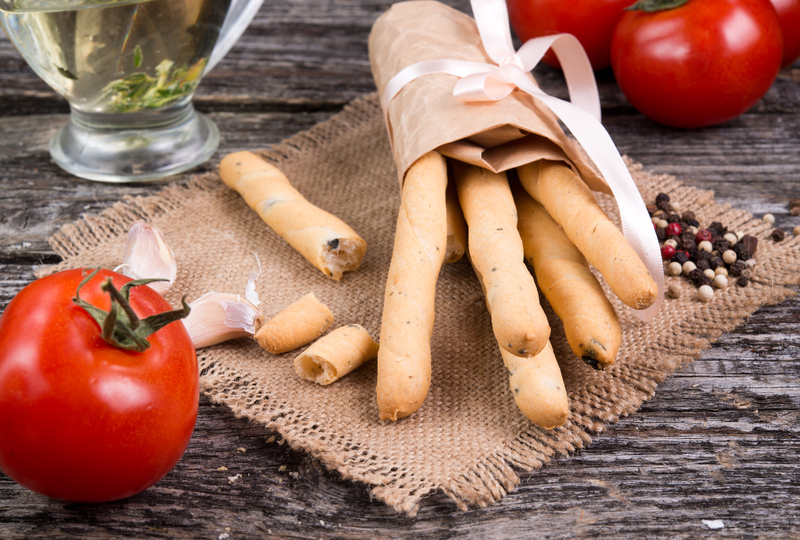Efficient Techniques for Plant Pot Disposal
Are you overwhelmed by a growing collection of plastic, ceramic, or terracotta plant pots? With gardening's surging popularity, homeowners and horticulturists face the dilemma of eco-friendly, convenient, and efficient plant pot disposal. In this comprehensive guide, we'll explore sustainable methods, creative reuse ideas, and expert tips for disposing of unwanted plant pots while minimizing environmental impact.
Why Efficient Plant Pot Disposal Matters
Every year, millions of plant containers accumulate in households, gardens, and nurseries. Proper and efficient plant pot disposal is crucial because:
- Plastic Pollution: Many pots are made of non-biodegradable plastics that can persist in landfills for centuries.
- Resource Conservation: Recycling and reusing plant pots helps conserve energy and raw materials.
- Clutter Reduction: Decluttering your garden or home creates organized, functional spaces.
- Wildlife Safety: Disposed pots left in the wild can harm animals or become breeding grounds for pests.
Let's discover smart techniques to tackle this common horticultural challenge!

Understanding Different Types of Plant Pots
Plant containers come in varying materials, and each type may require a unique disposal approach. The most common types are:
- Plastic pots: Lightweight, versatile, and often recyclable.
- Ceramic pots: Durable, decorative, may contain glazes or paints.
- Terracotta pots: Made from natural clay, porous, and biodegradable.
- Biodegradable pots: Composed of coir, peat, or compostable materials designed to break down naturally.
Understanding the material is key to choosing the most efficient plant pot disposal technique.
Eco-Friendly Techniques for Plant Pot Disposal
1. Recycling Plastic Plant Pots
Plastic plant pot recycling is one of the most efficient and sustainable methods. However, not all household recycling programs accept them due to contamination from soil or plant residues. Here's what you can do:
- Clean Thoroughly: Rinse all soil and debris. Pots with excess residue may be rejected by recycling facilities.
- Check Resin Codes: Inspect the bottom of your pots for recycling symbols and numbers (e.g., #2 HDPE, #5 PP). Most recyclable types are #2 and #5.
- Local Nursery Drop-offs: Many garden centers offer take-back or recycling programs for plastic pots. Call ahead to confirm details.
- Municipal Guidelines: Refer to your city's recycling rules online for specific plant pot disposal instructions.
Remember: Recycling plant pots keeps plastics out of landfills and reduces demand for new raw materials.
2. Composting Biodegradable Pots
Biodegradable pots made from peat, coir, or other organic substances are designed to break down naturally. Disposing of biodegradable plant pots can be as simple as:
- Direct-to-Compost: Place empty biodegradable pots in your compost bin or pile. They decompose along with regular organic waste.
- Plant with Pot: Some biodegradable pots can be planted directly into the ground; they'll nourish the soil as they break down.
- Shred for Faster Breakdown: Cut pots into smaller pieces to speed up decomposition.
This method is fast, efficient, and ideal for environmentally-conscious gardeners!
3. Creative Reuse and Upcycling
Efficient plant pot disposal can mean giving pots a second life. Repurposing and upcycling are eco-friendly and economical:
- Seed Starters: Use small pots to start seeds or propagate cuttings.
- Garden Organizers: Store garden tools, bulbs, or tags.
- Craft Projects: Paint or decorate pots for home or classroom art projects.
- Gift Packaging: Fill pots with treats, plants, or candles to give as unique gifts.
- DIY Projects: Make hanging planters, birdbaths, or fairy gardens.
Creative plant pot reuse prevents waste and adds personal flair to your home and garden.
4. Donating to Community Gardens or Nurseries
Many local community gardens, schools, and plant nurseries gladly accept used plant pots, especially in good condition. Steps for efficient donation:
- Sort and Clean: Remove labels, soil, and old plant material.
- Contact Organizations: Call ahead to ask about specific needs and drop-off times.
- Bundle by Size: Stack or group pots for easier transport and storage.
Donating plant pots supports gardening education and helps reduce the environmental impact of single-use plastics.
5. Proper Landfill Disposal
As a last resort, disposal of plant pots in landfill may be necessary--especially for broken, contaminated, or unrecyclable containers.
- Check Local Requirements: Some municipalities have special protocols for ceramic or glazed pottery.
- Avoid Hazardous Materials: If pots are painted with lead-based or hazardous glazes, consult local waste authorities for safe disposal instructions.
- Minimize Landfill Usage: Exhaust all recycle, compost, and reuse options before resorting to landfill disposal.
This method is the least eco-friendly, but sometimes unavoidable for efficient plant pot disposal where contamination exists.
Commonly Asked Questions on Disposing of Plant Pots
Are all plant pots recyclable?
No. Many plastic containers are recyclable, but ceramic and terracotta pots generally are not. Circular labels underneath can help identify which plastics your community accepts. Removal of metal wires, soils, or adhesives is important for successful recycling.
Can I compost plastic pots?
No. Plastic is not compostable. Only pots labeled as "biodegradable" or made from entirely organic materials can be safely composted or planted directly into the soil.
What about broken pots?
Broken ceramic or terracotta pots can be used as drainage material at the bottom of new planters, for pathway edging, or mosaic garden art. Otherwise, dispose of according to local regulations.
Is donating pots really helpful?
Absolutely! Schools, nurseries, and community programs often run on tight budgets and appreciate donations of good-condition pots, trays, and plant carriers.
Are there collection events for plant pots?
Yes. Many regions sponsor annual or seasonal events for bulk plant pot disposal and plastic gardening waste. Check with your local horticultural society or waste authority.
Tips for Reducing Future Plant Pot Waste
Adopting sustainable gardening habits can greatly minimize the need for frequent plant pot disposal. Consider these strategies:
- Buy in Bulk or Larger Pots: Fewer, bigger pots mean less packaging and waste.
- Choose Quality Over Quantity: Invest in sturdy, reusable pots that last for years.
- Opt for Biodegradable or Compostable Pots: Make eco-friendly choices at the garden center.
- Start a Pot Sharing Program: Coordinate with fellow gardeners to swap and share containers.
- Ask for Minimal Packaging: When buying plants, request fewer or no extra pots when feasible.
These simple changes can significantly reduce the overall environmental impact of plant pot usage.

Innovative Solutions and Industry Efforts
Several nurseries, manufacturers, and community groups are working toward efficient plant pot disposal solutions:
- Milk Jug Collection Programs: Some companies use recycled plastics (like milk jugs) to make new plant containers.
- Looped Packaging Systems: Major suppliers are piloting take-back and closed-loop recycling for garden plastics.
- Biolene and Other Green Plastics: Innovations in bioplastics, such as polylactic acid (PLA), offer compostable alternatives.
- Community Recycling Drives: Nonprofits regularly organize plant pot collection and redistribution efforts.
When shopping for new plants, ask nurseries about their recycling policies or inquire about sustainable packaging options. Choosing eco-conscious brands supports industry change.
Conclusion: Choose Smart Plant Pot Disposal for a Greener Tomorrow
Efficient techniques for plant pot disposal are essential for anyone striving for a cleaner home, thriving garden, and healthier planet. Whether you recycle, compost, donate, or creatively reuse your old pots, each action contributes to reduced landfill waste and resource conservation. Prioritize eco-friendly solutions, educate others, and make efficient plant pot disposal part of your gardening routine.
Ready to tackle your pile of old pots? Start today and become a champion for sustainable gardening!
Related Resources
By following these tips and techniques, you'll not only manage plant pot disposal efficiently, but you'll also inspire others to grow greener, more sustainable gardens.